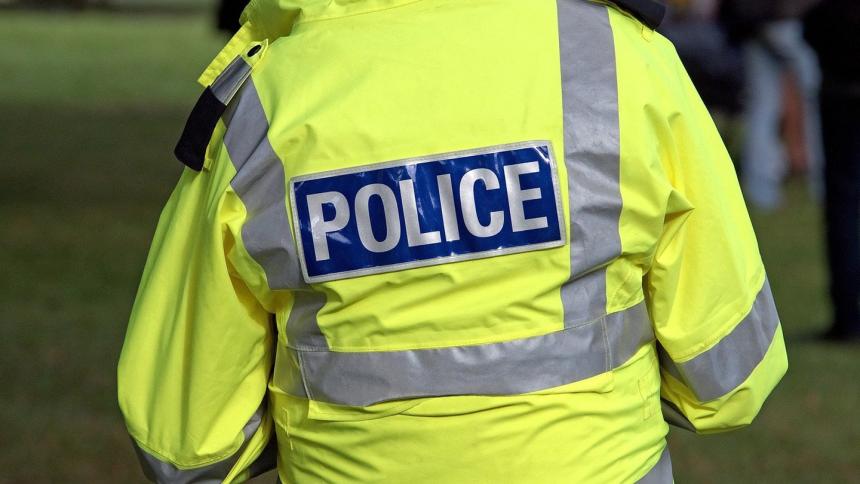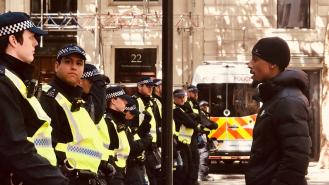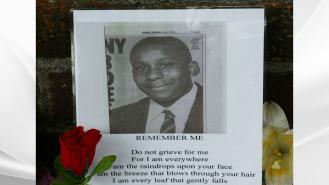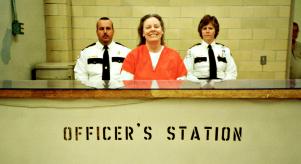
Why is 'stop and search' so controversial?
'Stop and search' has always been one of the most controversial aspects of the police playbook. It recently made headlines yet again when official figures for England and Wales revealed that black people are nine times more likely to be stopped and searched compared to white people. These stats are based on the period 2019-20, when 577,054 stops were conducted in England alone. In more than 76% of cases, the stop led to no further action, with the member of the public allowed to go about their business.
Significantly, section 60 stops rose by 35% during this period. These kinds of stops are doubly controversial because – unlike regular stop and search, which requires 'reasonable' grounds for suspicion of wrongdoing – section 60 stops can be carried out on anyone who happens to be in a 'defined area during a specific time period”' The intention with section 60 is to provide police with powers to nip potential violence in the bud, in a high-risk place. However, many believe section 60 is a step too far, adding to what Martha Spurrier, director of campaign group Liberty, calls 'overzealous policing', especially during the coronavirus pandemic. The numbers with regards to section 60 stops seem to bear this out, showing that of the 18,081 stops, only 4% resulted in arrest. Black people are also a startling 18 times more likely to be stopped under section 60.
Liberty sees all of this as evidence of 'increasing state harassment' of black people. The racial disparity in who gets stopped and searched is certainly uncomfortably conspicuous. Many will argue this underscores unconscious bias on the parts of individual police officers, at best, or widespread institutional racism at worst. Others, however, will argue that stop and search is a neutral tool that’s necessary for dealing with criminals throughout society. The Home Office has pointed out that, as the majority of stops take place in London, and London has a high proportion of black people compared to the rest of England and Wales, the overall stats are racially skewed as a result.
This will come as cold comfort to the vast numbers of black people who have been stopped in the capital. Figures show that, during the pandemic lockdown period, the Metropolitan Police conducted 22,000 such searches, with more than a quarter of all black 15-24-year-olds stopped. The chief executive of StopWatch, Katrina Ffrench, responded to the news by asking 'How do those young people feel when this is their city, they’re going about their daily business, could be caring for parents, all sorts of reasons as to why they’re out?'
Met Police commissioner Cressida Dick has robustly defended stop and search, framing it as a legitimate and proportional response to the fact that black people are more likely to be perpetrators and victims of violent crime. When challenged by a home affairs select committee chair about the fact that the vast majority of stops resulted in no further action being taken, Dick said that some of the people stopped were actually 'very violent repeat offenders' who happened not to be carrying illicit items at the time of the stop.
'Some of them have stashed it, given it to the other boy or whatever,' she said. “That’s a proportion of those people. Because what I can tell you is we’re focused in the right areas and focusing hugely on people that we know to be involved in violent crime.'
In the words of a Met Police spokesperson, 'crime… is not proportionate either, and different crimes affect different groups. Tragically, knife crime and street violence in London disproportionately affects boys and young men, particularly of African-Caribbean heritage, both in terms of victims and perpetrators.'
Even if this argument is accepted as a reasonable rationale for stop and search, there’s a further question that needs answering. Does stop and search actually work?
In 2018, a paper was published in the British Journal of Criminology entitled 'Does Stop and Search Deter Crime?' It drew on masses of data from a decade of policing in London, applying mathematical analysis to determine the time-lagged impact of stop and search on crime. 'While there is some association between stop and search and crime (particularly drug crime),' the authors wrote, 'claims that this is an effective way to control and deter offending seem misplaced.' The study highlighted the fact that, following a 10% surge in stop and search during a particular month, recorded drug offences would be only 1.85% lower the next month, while violent crime as a mere 0.01% lower.
Yet others have vigorously defended stop and search as an effective tool. Boris Johnson, speaking of his tenure as the Mayor of London, once said 'we reduced knife crime in London with a very active policy of stop and search.' Meanwhile, Professor Ben Bradford, co-author of the paper mentioned above which took a dim view of the effectiveness of stop and search, did concede in an interview with FullFact.org that 'Without stop and search the police would be arresting more people to investigate these crimes. It is more efficient to search them.'
This is, in other others, an incredibly complex situation that inflames passions. Many believe the approach to crime should be more holistic and sensitive to the issues within communities. Liberty’s Rosalind Comyn says that 'The government should prioritise strategies for community safety that address the root causes of violence and reduce the need for police interventions, rather than increasing state harassment of people.'
StopWatch’s Katrina Ffrench has also pointed out the effectiveness of measures such as knife amnesties, while criticising the very idea of a debate over stop and search. 'There is no real debate to be had: all the evidence tells us this is a terrible idea.'
It’s safe to say, however, that the arguments will continue.








